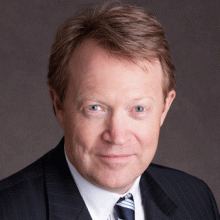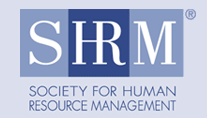Global Reset: What’s in Store for the Future of Global Business
A quarter century after the Cold War ended and rapid globalization began, there are new and fundamental questions shaping the future of global business. Have we reached a new phase in global business? Will the global economy “snap back,” or will corporations return to protectionism and regionalism? In the wake of these uncertainties, many of the world’s largest corporations have begun pursuing localization strategies. Jeff Immelt, former CEO of General Electric, observed that the core issues that propelled him to the top of GE—innovation, productivity and globalization—no longer hold weight in the current environment. What, then, should companies do? Within the context of this question, business leaders must also address diverse issues shaping the future business environment, as they present unique opportunities, challenges and the likelihood of increased competition. Join Erik Peterson as he explores answers to these questions while addressing what these changes mean in an operating environment marked by high barriers to the flow of people and to goods/capital.
Erik R. Peterson

Erik R. Peterson has devoted more than two decades to assessing long-range global trends and determining what they mean to leaders in government, business, and civil society. He has provided riveting presentations in more than 40 countries about the current and future implications of sweeping change for organizations across the board.
As the director of A.T. Kearney’s Global Business Policy Council, Peterson advises the world’s top CEOs and business-minded thought leaders. His work focuses on approaches and solutions to some of the world’s most pressing issues. Prior to joining A.T. Kearney, he served as senior vice president at the Center for Strategic and International Studies (CSIS) and as director of research at Kissinger Associates. The author of numerous publications, Peterson including one on global strategic trends and their impact on global business-from the changing nature of production in the Fourth Industrial Revolution to new forces shaping supply chain management to emerging challenges to labor to policy and regulatory variables. His recent writings have focused on foreign investment trends, the attitudes of business leaders around the world, how cities are rising to the challenge of changing circumstances, the impact of Brexit, shifts in global supply chain management, the global economic outlook, and global trends. Peterson was a part of A.T. Kearney’s recent work with the World Economic Forum on the Future of Production, which assessed the impact of take-off technologies including artificial intelligence, the Internet of Things, advanced robotics, 3D printing, and augmented reality.
Peterson currently serves on the Board of A.T. Kearney’s recently established Energy Transition Institute, a non-profit group with the mandate of providing decision-makers with strategic recommendations based on objective research combining deep technology expertise with business acumen and foresight. He has also served on several advisory boards and judging panels, including the Center for Global Business Studies at Pennsylvania State University, the Center for the Study of the Presidency and Congress, and the Gerald R. Ford Foundation prize in national security reporting. In past years, Peterson was a fellow of the World Economic Forum and a member of the Forum’s Global Risk Network. Peterson received his MBA from the Wharton School at the University of Pennsylvania, his MA from the Johns Hopkins University School of Advanced International Studies (SAIS), and his BA from Colby College. He holds the Certificate of Eastern European Studies from the University of Fribourg (Switzerland) and the Certificate in International Legal Studies from The Hague Academy of International Law (The Netherlands). Most recently, he received a certificate in scenario-based planning from the Said School at Oxford University.
Find Sessions by Day
